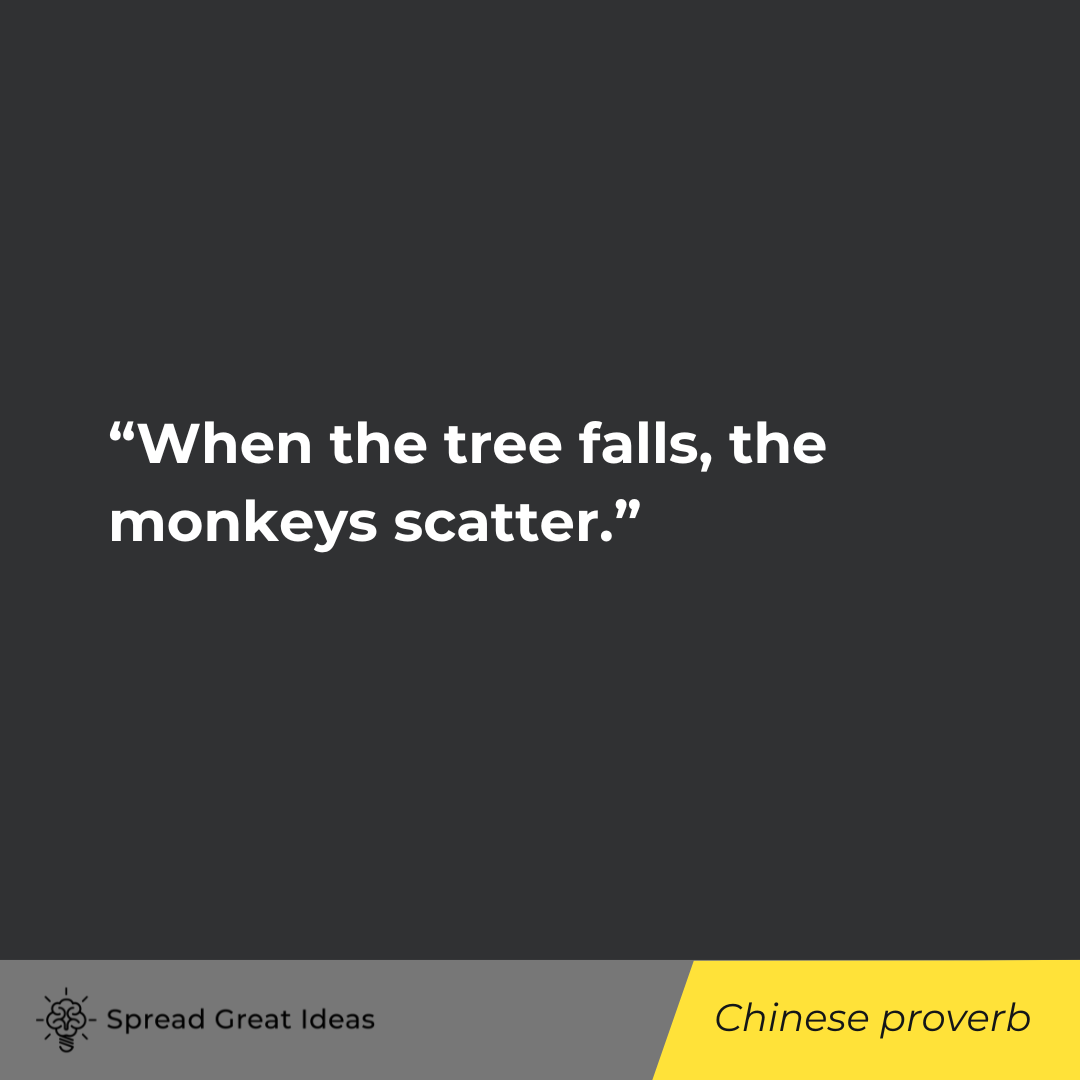Table of Contents

If one seeks power of any kind, it is necessary to have a goal and a path toward that goal. While tactics used along the way are in flux, the strategy will largely remain the same. So careful attention must be paid to devising a strategy. The right strategy can make all the difference in the world when it comes to when, or even if, the ultimate goal is arrived at.
Many great men have written on the process by which strategy should be arrived at. The art of the general is as applicable to our own struggles as it is on the battlefield. This is why so many who have never even been in the same room as a weapon have studied The Art of War.
The ultimate aim of virtually anyone striving in such a way is power, whether we mean power over the self or power over others. Once power is acquired, the question is how one chooses to exercise it. This is a class of wisdom all its own and one that is best studied well in advance of actually acquiring power, lest one be unprepared for its exercise when power does finally arrive.
The following are some crucial musings on proper strategy and the nature of power. Use them as a starting point for your own quest for power — whatever that means to you.
Quotes About Power and the Effects Power Can Have
Plato
“The measure of a man is what he does with power.”
– Unknown, often misattributed to Plato
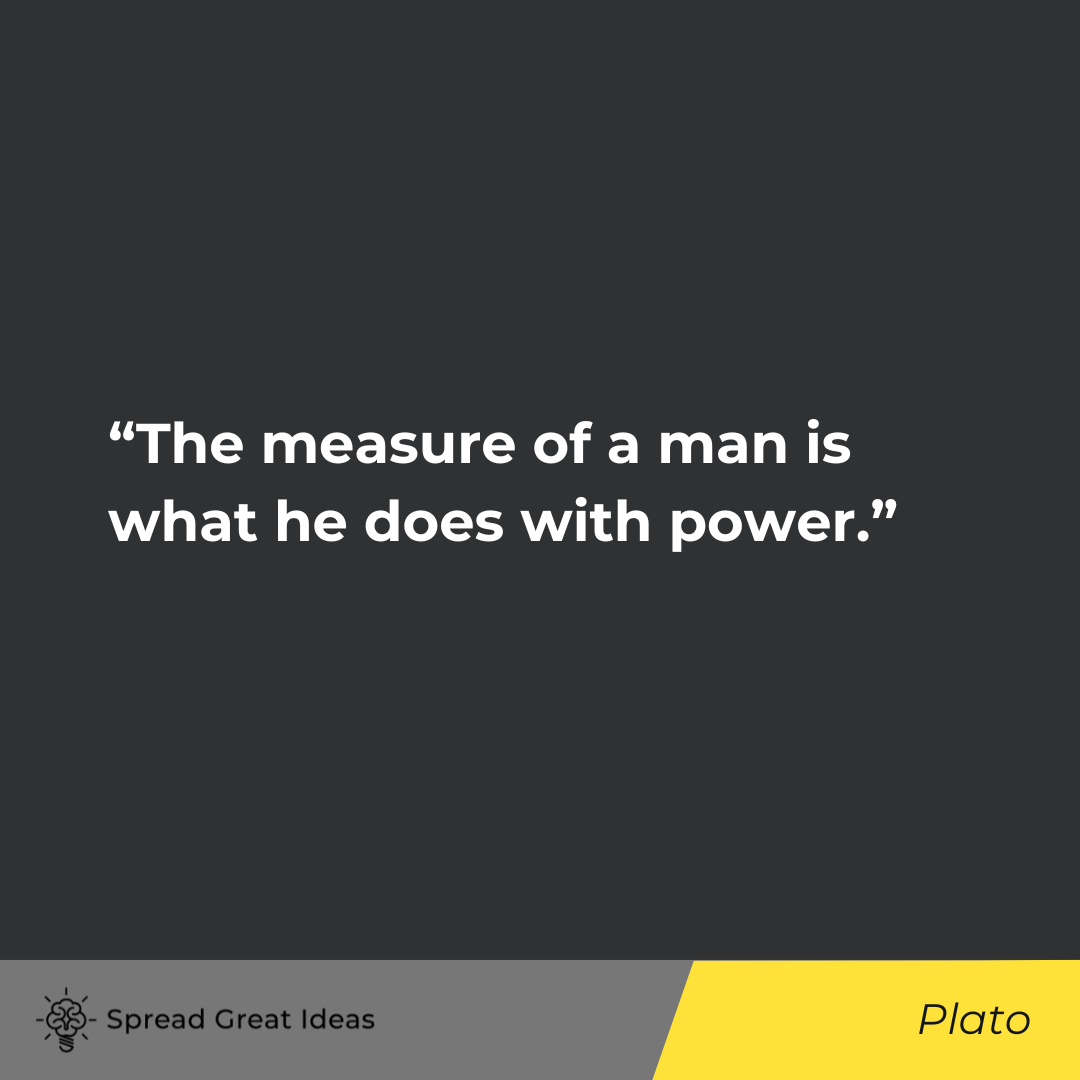
Napoléon Bonaparte
“To do all that one is able to do, is to be a man; to do all that one would like to do, is to be a god.”
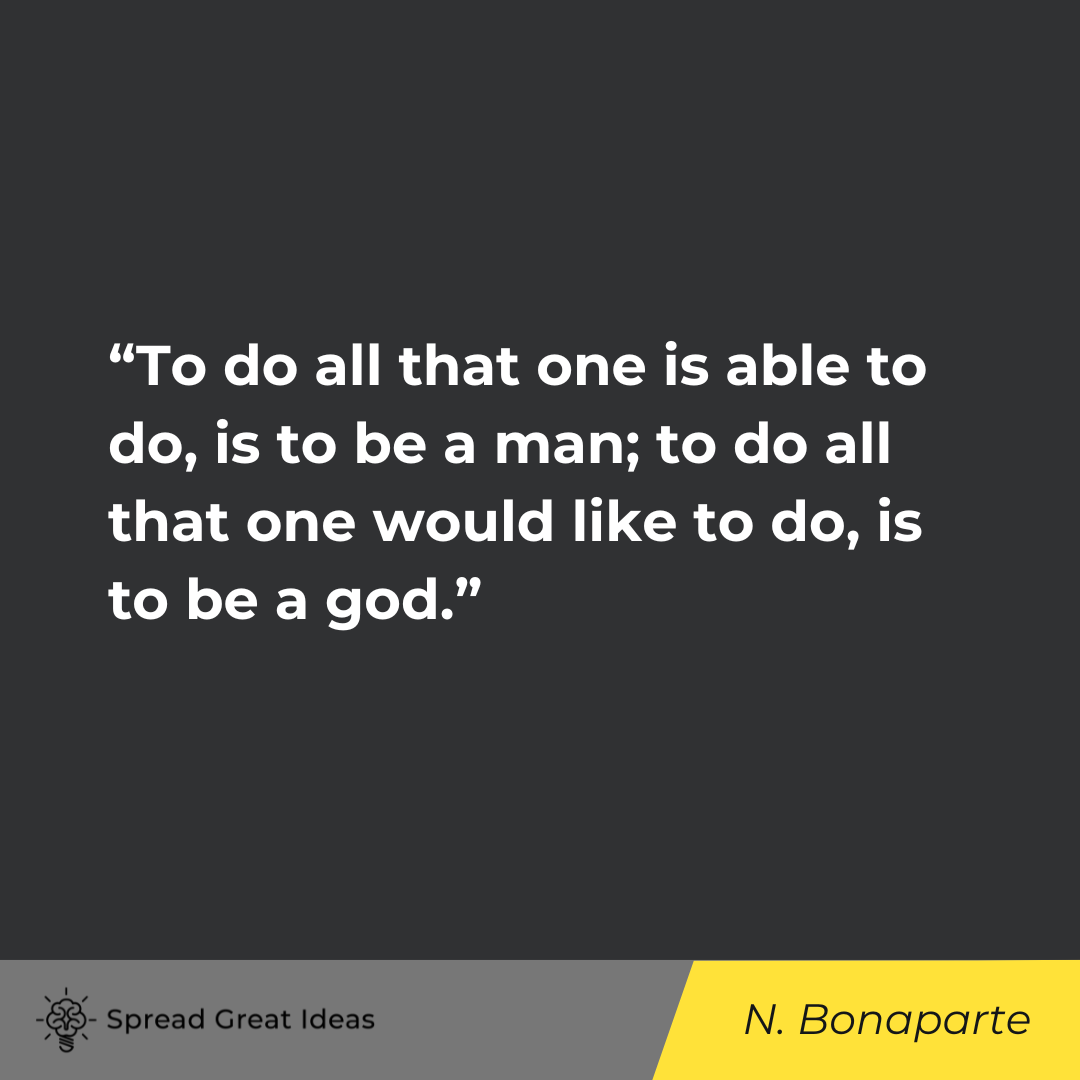
Robert Greene
“Power rarely ends up in the hands of those who start a revolution, or even of those who further it; power sticks to those who bring it to a conclusion.”
– Robert Greene, 48 Laws of Power
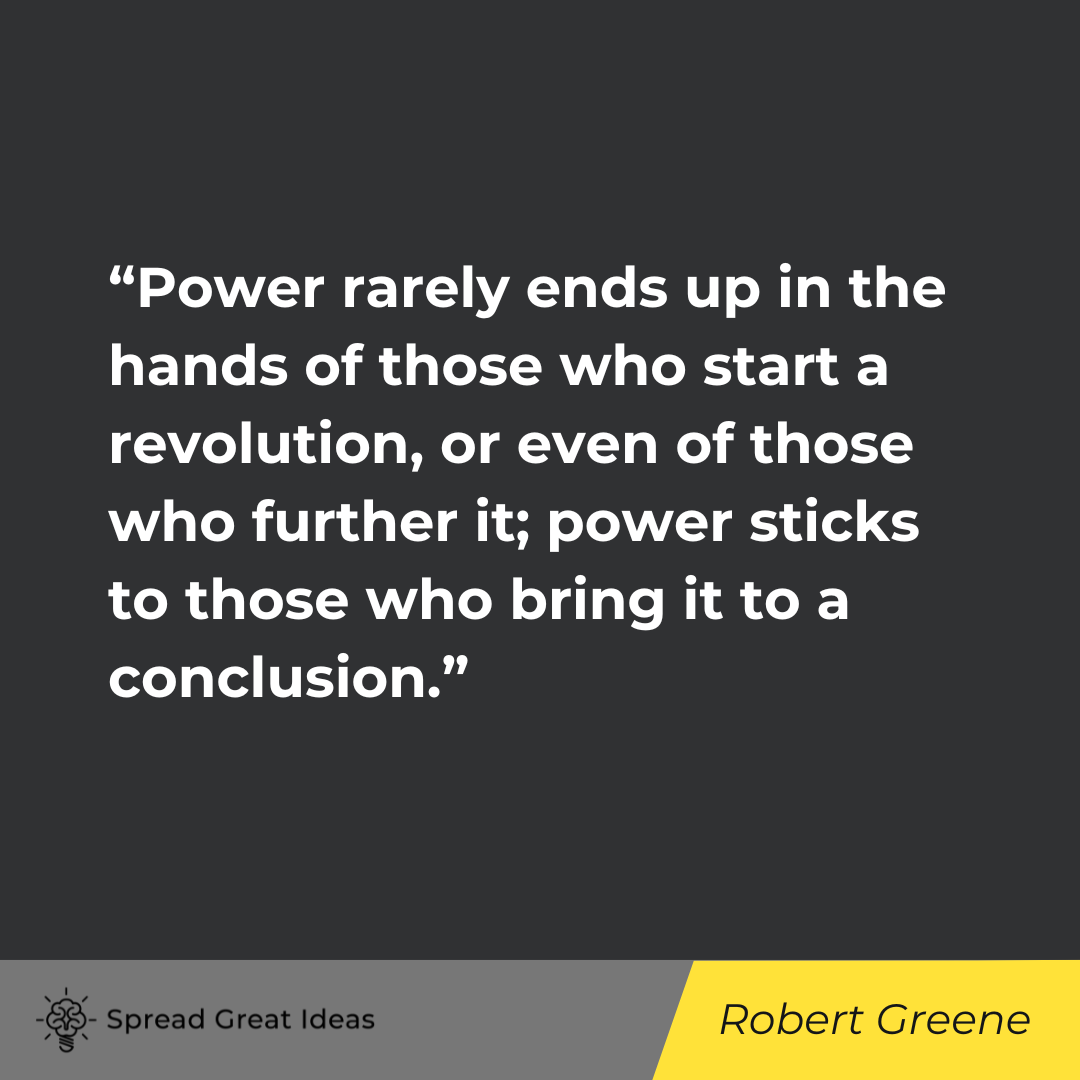
Ram Dass
“The most exquisite paradox…as soon as you give it all up, you can have it all. As long as you want power, you can’t have it. The minute you don’t want power, you’ll have more than you ever dreamed possible.”
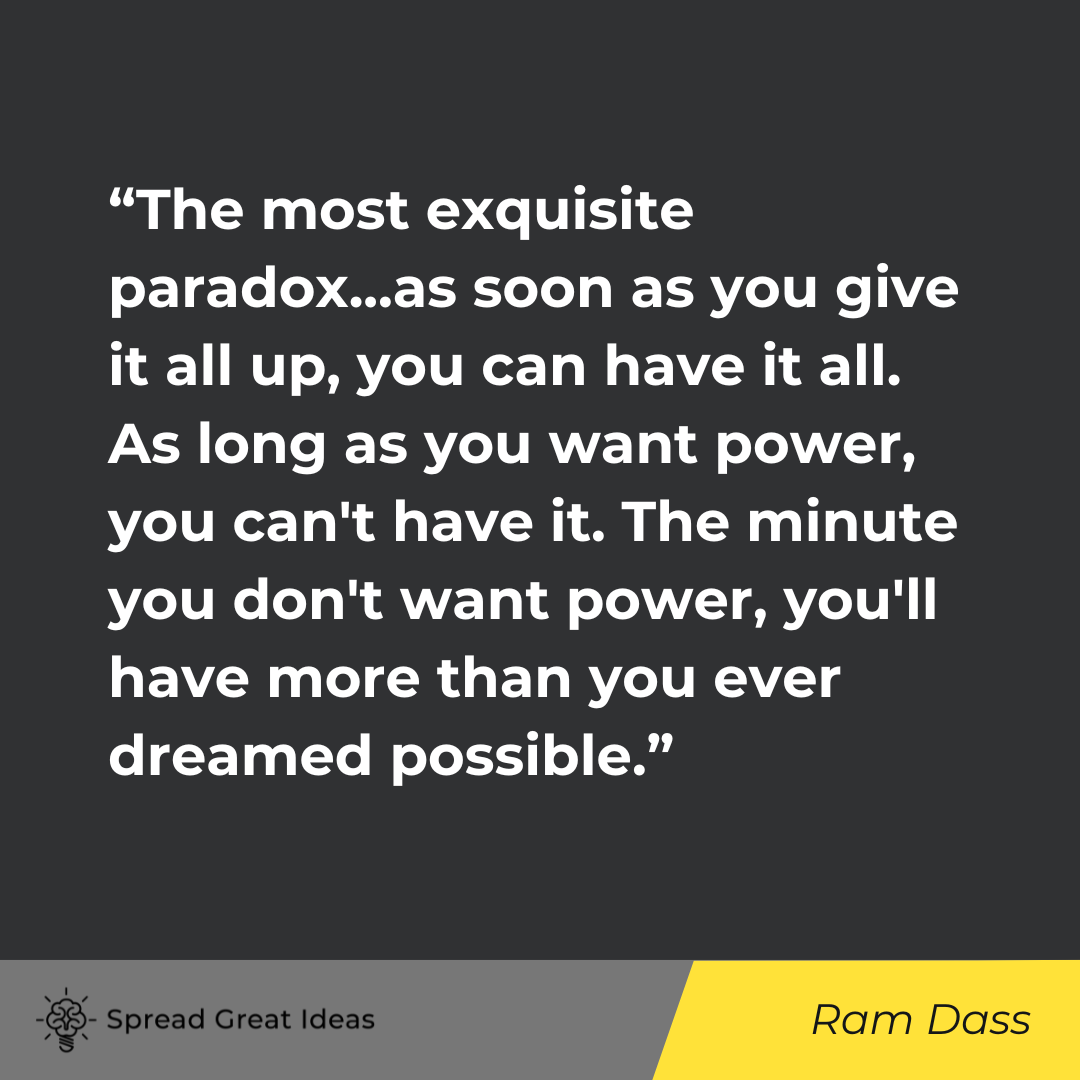
Robert A. Heinlein
“Consider the black widow spider. It’s a timid little beastie, useful and, for my taste, the prettiest of the arachnids, with its shiny, patent-leather finish and its red hourglass trademark. But the poor thing has the fatal misfortune of possessing enormously too much power for its size. So everybody kills it on sight.”
– Robert A. Heinlein, Stranger in a Strange Land

Fyodor Dostoevsky
“Power is given only to him who dares to stoop and take it … one must have the courage to dare.”
– Fyodor Dostoevsky, Crime and Punishment
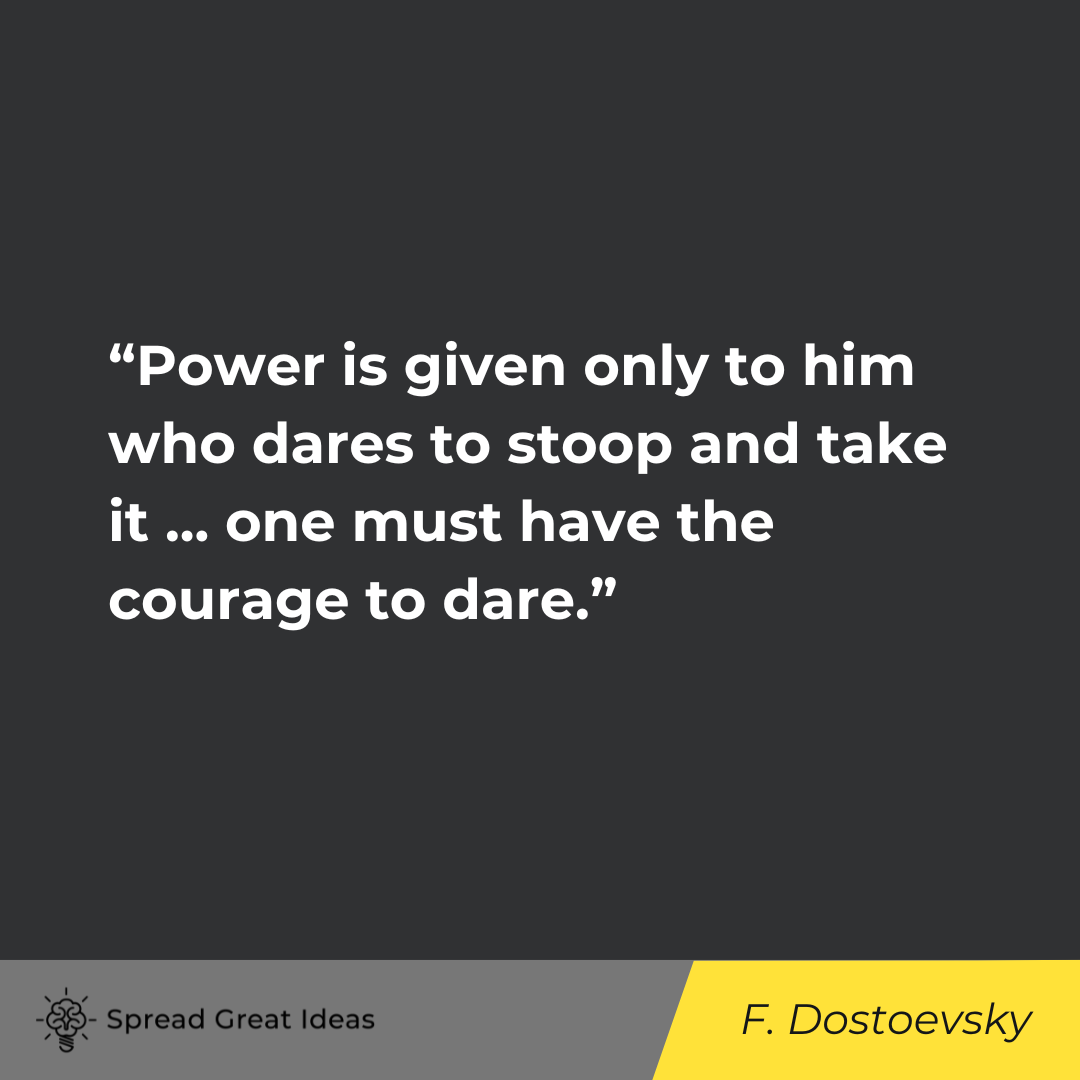
John Steinbeck
“Power does not corrupt. Fear corrupts… perhaps the fear of a loss of power.”
– John Steinbeck, The Short Reign of Pippin IV
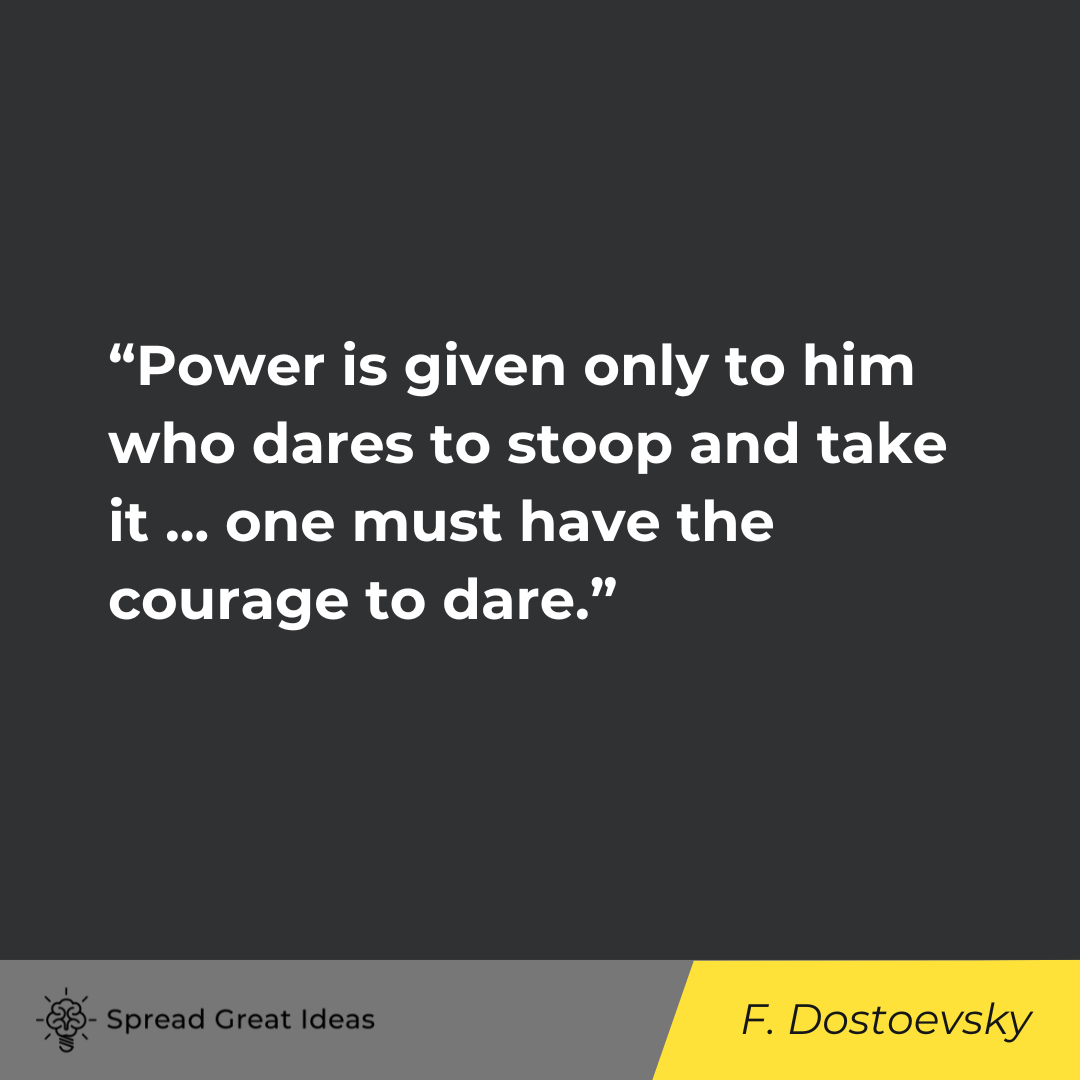
Robert Ingersoll
“If you want to find out what a man is to the bottom, give him power. Any man can stand adversity – only a great man can stand prosperity.”
– Robert Ingersoll, speaking about Abraham Lincoln
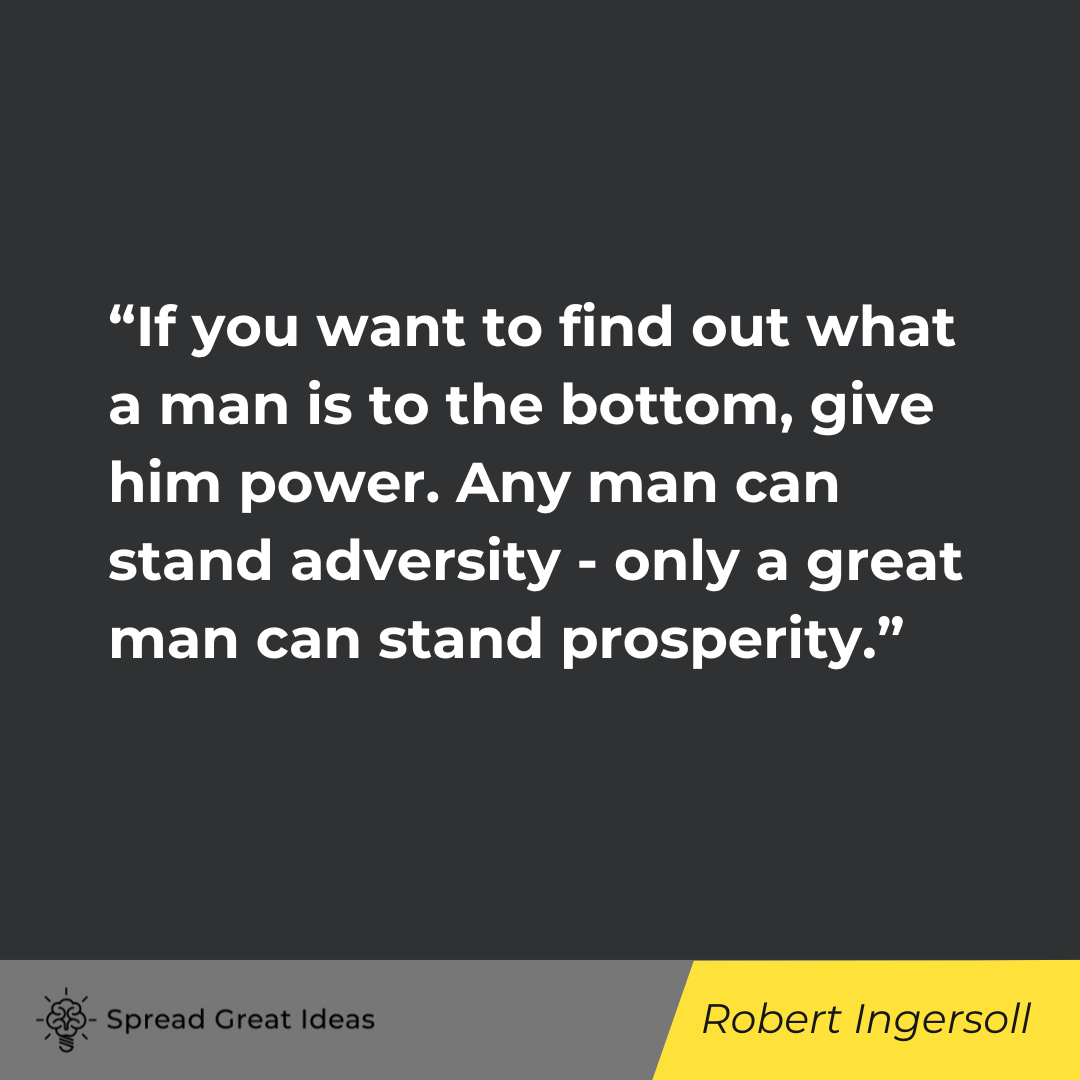
George Orwell
“Power is not a means; it is an end. One does not establish a dictatorship in order to safeguard a revolution; one makes the revolution in order to establish the dictatorship. The object of persecution is persecution. The object of torture is torture. The object of power is power.”
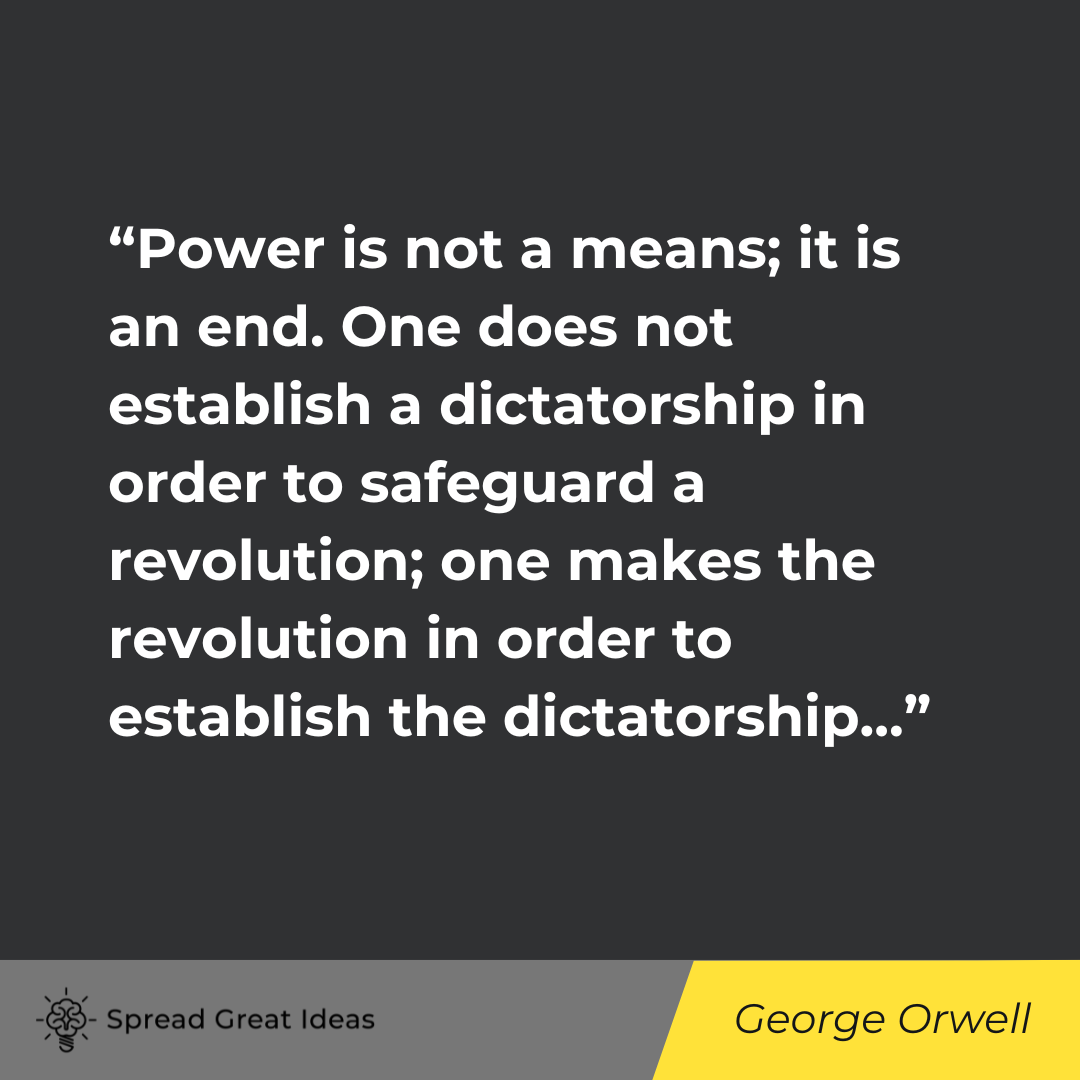
Henry Ward Beecher
“If any man is rich and powerful he comes under the law of God by which the higher branches must take the burnings of the sun, and shade those that are lower; by which the tall trees must protect the weak plants beneath them.”
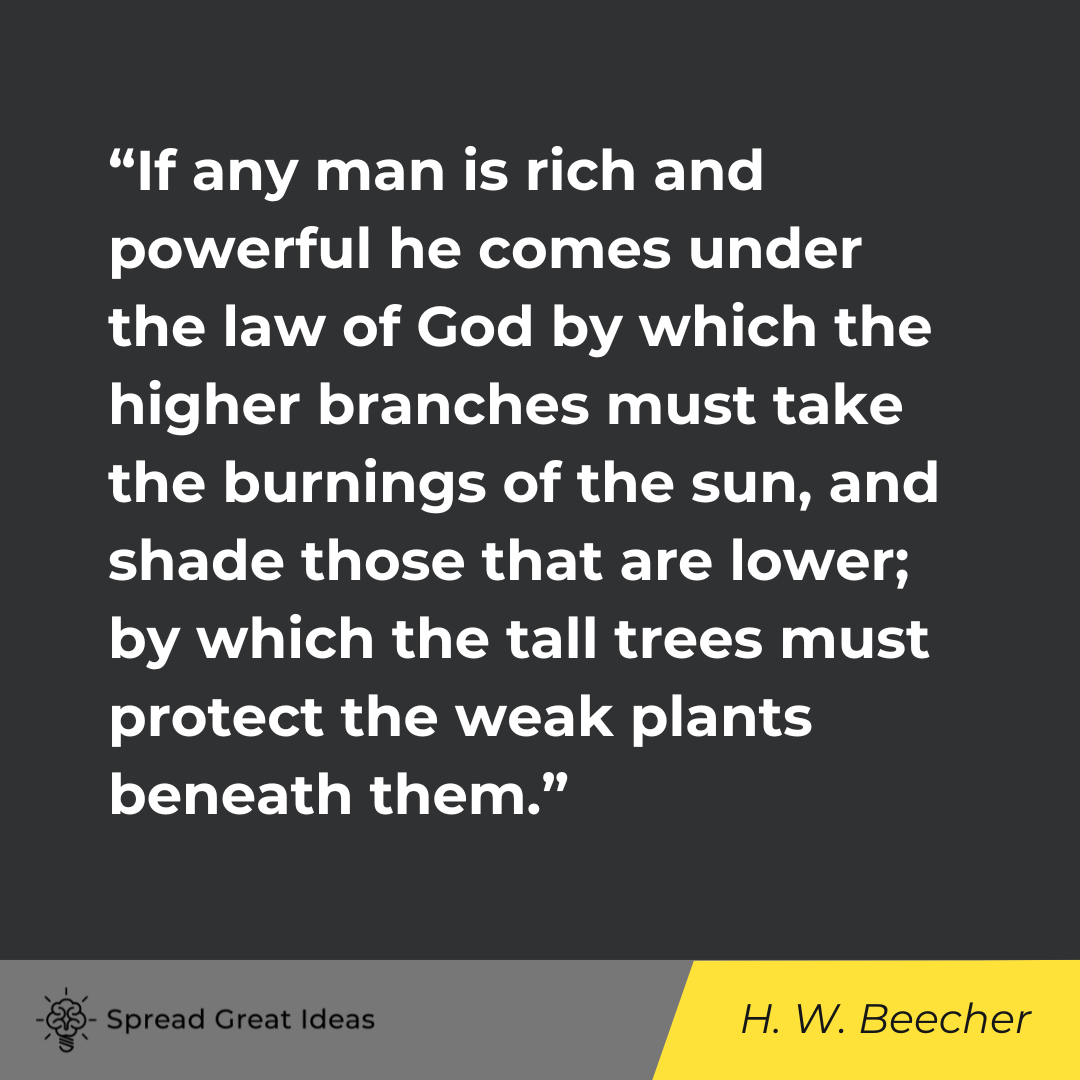
Ayn Rand
“Power-lust is a weed that grows only in the vacant lots of an abandoned mind.”
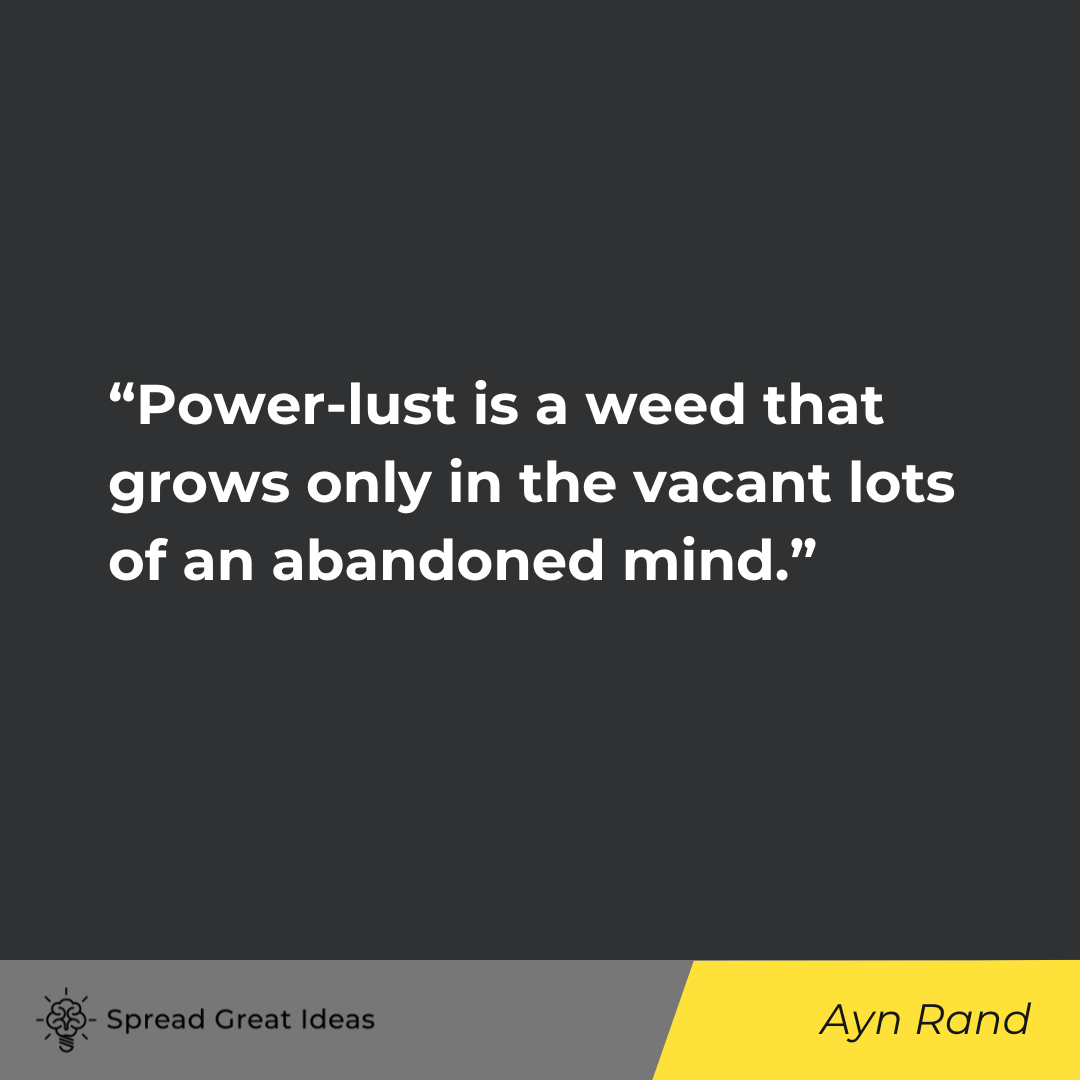
Chinese proverb
“When the tree falls, the monkeys scatter.”
